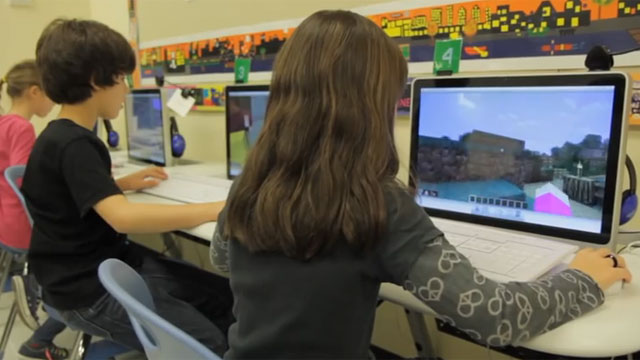Why Schools Need to Include Esports in Their Curricula

The traditional view held by educational institutions in the past was that games were a distraction to young people's education. However, the growth of the esports industry is gradually debunking this notion, with the demographic made up of students from grades 6 to 12, as well as secondary and college levels. There is also the introduction of age-appropriate games such as Minecraft and Rocket League to the primary level, making the industry that of an all-inclusive one for the standard educational levels.
Now, schools can have the option of having to insert esports as part of extracurricular activities, and game-based learning is proven to offer benefits in cognitive, social and behavioral aspects. Positive impacts highlighted from studies conducted show that students’ academic performances improve, there is increased focus in class – with attendance, engagement and participation all on a high.
Need we say more? Probably a few pointers on why esports should be included in school curriculums can be outlined:
Encourage Social and Academic Engagement
To identify those who find success in their education, extracurricular activities as a tool can help do that job. Students found to be involved in these activities are very likely to be engaged in class, whereas disengaged students find it difficult in the aspect of engagement. With esports put in the picture, now students can explore and build a niche off of this – students who are gamers will participate in this, giving them an opportunity to develop their socialization skills as well as enhance educator-learner relationships. And with academic requirements such as having good grades, students will be motivated to do well in school because they are doing something they love.

Promotes Teamwork and Collaboration
Esports encourages teamwork in gamers, and this is a virtue that will be developed in students as they will be put into groups to collaborate – complementing each other, as well as communicating effectively during tournaments. This becomes a combined skill to possess not just for school, but also for the field of work, and should some of them venture into esports agencies/organizations, this will help them greatly to be better esports players, content creators, game developers, event managers among the array of available esports jobs. There are also the skills of leadership and sportsmanship to be acquired from the activity, and continuous participation can help students immensely.
Allows Students Explore STEM Concepts Students are offered a path in participating in STEM concepts, yes! Through the use of esports, they are able to develop their arithmetic and problem-solving skills as they make analysis from their gameplay data and develop ways to improve their gaming strategies. Students, upon their exposure to computers and other associated equipment, get to have hands-on experience with computers, where they learn about hardware and their functions; a possible furthering and potential future into pursuing video game programming, software engineering among other related courses.
Our message to the educational institutions is this: Now is the time to do this integration if you have not. It is not too late to research this and get it incorporated with your curriculum. Esports is here to stay for a good while; consider the benefits this is going to bring — certainly a game changer in education!
Esports has helped create jobs for lots of people. Interested in knowing about the business side of esports? Listen to the Gamers Change Lives Podcast! We get experienced guests from all around the world featuring.
Written By Jeffrey Osei-Agyeman









